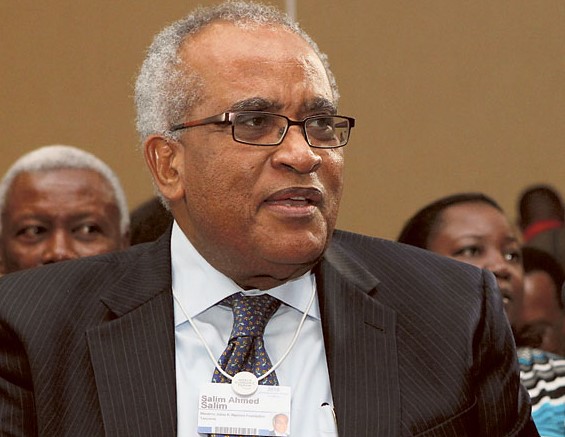Two notable African diplomats-cum-technocrats: Dr. Salim Ahmed Salim of Tanzania, and Dr. Amara Essy of Cote D’Ivoire; have explained that the notion of Blacks in the Diaspora underlines the specificity of some migration phenomenon, which contributed in making sense out of certain transnational and continental movements.
In a new publication jointly authored by the duo in Dar-es-Salaam, they affirmed that since the 1980s, Africans in the Diaspora have become the focus of numerous academic research and publications in the field of social sciences. But according to them, the notion of Diaspora must be distinguished from other phenomenon of migration, as the importance of the ties between members of the Diaspora and their countries of origin is prevalent.
Dr. Salim, who served as the Secretary-General of the defunct OAU from 1989 – 2001; and Dr. Essy, who succeeded him in 2001, pointed out that as of today, the African Diaspora is one of the most important in the world in terms of numbers. According to them, the African Diaspora is composed of “people of African origin living outside of the continent, irrespective of their citizenship and nationality, and who are willing to contribute to the development of the continent and the building of the African Union, AU”.
They identified three main periods relevant in giving an overview of the history of Africans in the Diaspora. According to them, historically, the first wave of forced African migrations began during the Transatlantic Slave Trade (16th -19th century). Europeans captured or bought African slaves, mostly from West Africa, and brought them to Europe, and later on to South and North America. The number of Africans who were shipped across the Atlantic is estimated to be 12 million.
The diplomats said the population movement can be considered as the migration that paved the way for the constitution of the first African community outside of Africa. They referred to the slave trade as the “founding myth” of the African Diaspora in Europe and in America. Many Africans were deported out of Africa during this period, but the feeling of belonging to a community, the African community, did not disappear. Their conclusion is that this feeling has become much stronger now.


















